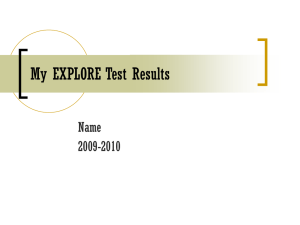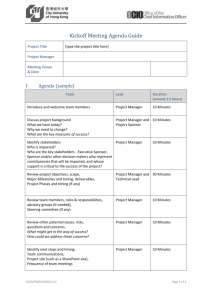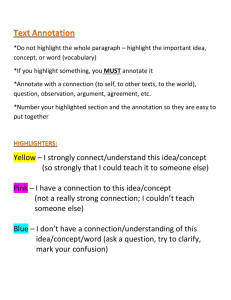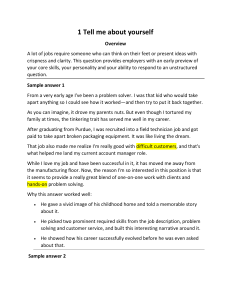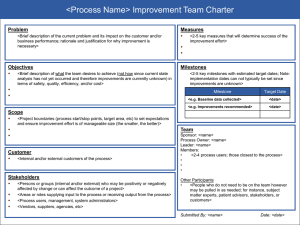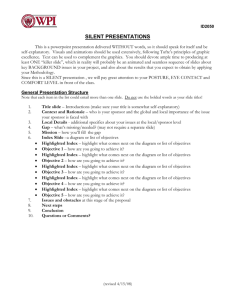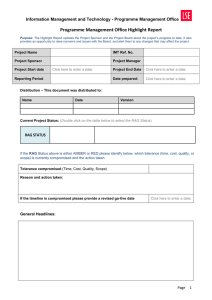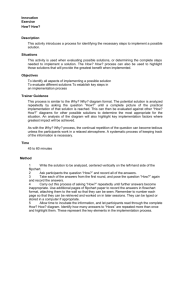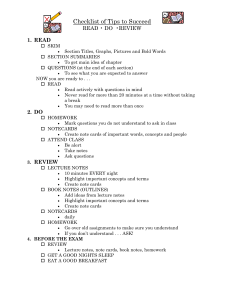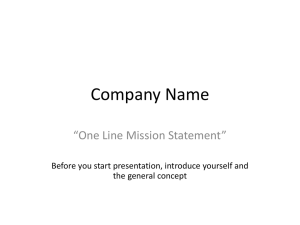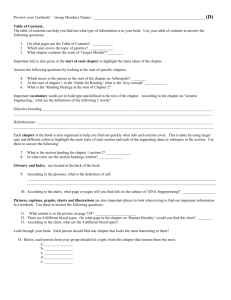Business Case - Office for the Public Sector
advertisement
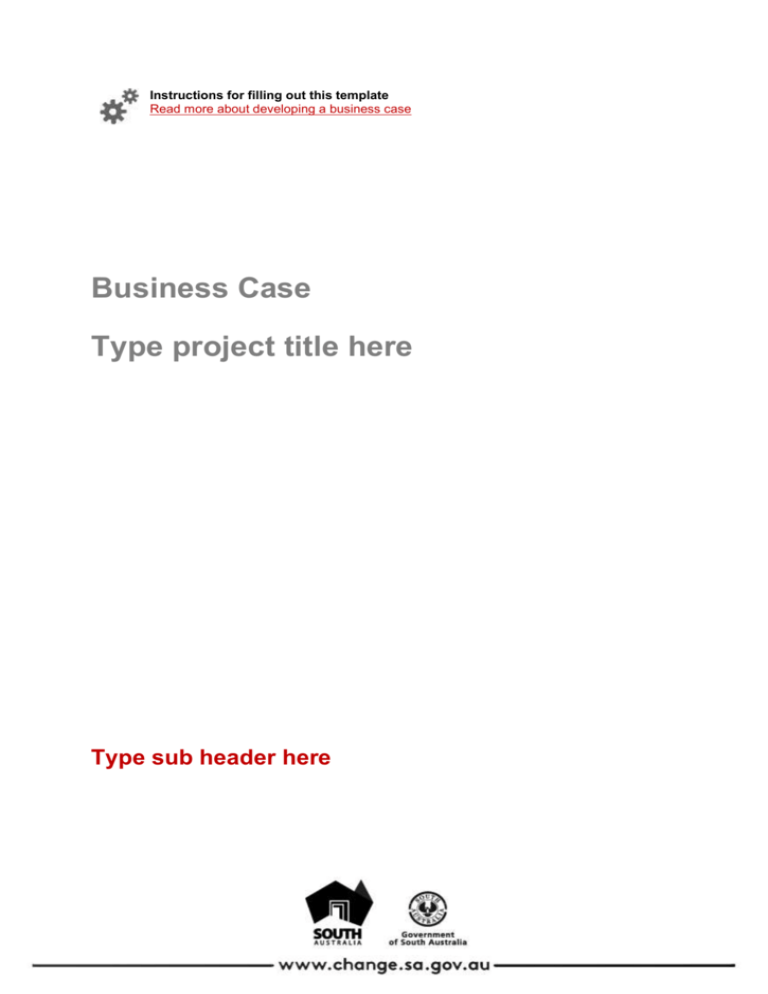
Instructions for filling out this template Read more about developing a business case Business Case Type project title here Type sub header here 1. Executive Summary It is easiest to complete this section after the rest of the document is finished. It should be a succinct summary of all your major points, and should not contain any information that is not elsewhere in the document. Keep it concise. 1.1 Overview There is no need to include an extensive introduction or background in this section, just a précis of the introduction, background, problem statement and objectives that are in the main body of the document. Be sure to include information about the priority and importance of the project in the context of the strategic objectives of the facility/organisation, and the benefits to the South Australian Government and community. 1.2 Options appraisal Provide a brief summary of the options considered and the reasons for choosing the preferred option. 1.3 Costs and benefits Summarise the main points and include sufficient detail so that your executive or approval committee can use this page as a ready reference. 2. Introduction 2.1 Background Provide a brief history of how the project came into being, and where the authority and drive for it comes from. Include background on the nature of the work conducted to explain why you want to take on the project. 2.2 Problem statement Provide a succinct statement of the problem that will be directly addressed through this project. 2.3 Strategic objective Provide the high-level, strategic objectives of the facility/organisation within which this project sits, or the overall objective of your division or department. After a brief description, it may help to align the measures you’re going to take with the relevant strategic directions, e.g. Strategic objectives Measure E.g. To ensure the provision of safe, effective and efficient patient care E.g. Adverse events in patient care 2.4 Project objectives The project objectives highlight the end goals or products of this project. This should highlight short to medium and long-term objectives, as well as ultimate impacts. 2.5 Related projects Briefly state any other projects that are being undertaken that relate to the same strategic objectives. Be sure to highlight whether there are interdependencies between your project and any of the others you mention. 3. Options analysis You may be required to consider more than one option to achieve improvements, and this section should contain an analysis of the options, plus a ‘do-nothing’ option. Insert a description of each option considered, then include full details and analysis of all options in an Appendix. 1. Option 1 – do nothing 2. Option 2 – 3. Option 3 – The following table will help you summarise and compare of all options considered. Option 1 - <short description> Benefits What are the benefits of each option? Disadvantages What are the negative consequences of each option? Timescale Over what period will the costs be incurred and over what period will the benefits occur? Costs What are the costs and supporting assumptions associated with each option, including ongoing costs? Major Risks What are the aggregated risk ratings (highlight the risks that will have an effect on the business objectives and benefits)? 3.1 Preferred option State the preferred option and why. Option 2 - <short description> Option 3 - <short description> 4. Procurement State what procurement action would need to be undertaken. Include an indicative timetable and justification for the proposed approach. 5. Project strategy Key milestones and deliverables Outline the key milestones. Costs – benefit analysis 6. Outline how calculations for savings and benefits have been made – include attributable costs. 7. Project management and control 7.1 Business case Write a brief statement on how this document will be kept up to date during the course of the project. Review points particularly where the expected scope, costs, benefits and savings figures are readjusted or confirmed. How will different versions be identified? 7.2 Governance This section outlines the project management structure that you will use to manage the project. Make sure you cover at least the following points: 7.3 Who will oversee progress (E.g. committee, executive sponsor, divisional head)? Who will manage the project? How will the project sponsor and governance body be kept informed of progress? Risk Use your organisational risk assessment tools and policy to undertake a risk assessment of each of the options. 7.4 Progress monitoring Describe the mechanisms that you will establish to monitor and compare actual achievements against your baseline plan. 8. Next Steps
